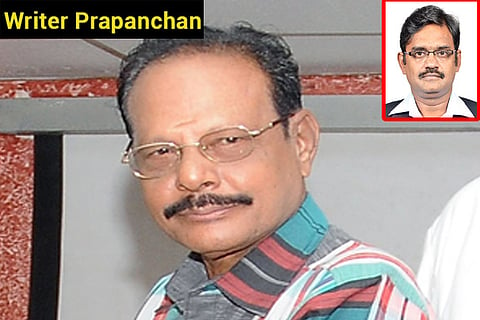

Chennai
HISTORICAL fiction is an integral part of contemporary Tamil literature. It started in the late 1930s when Kalki started the trend of writing about kings and queens from the golden ages of Pallavas and Cholas. It’s an accepted fact that it was Tamil historical fiction that made many millions seek reading as a hobby. Though these books entertained and also influenced readers to feel interested in history they were far from accurate. Though the main issues on which the story ran were taken from actual historic research and findings which were plenty in the early half of the century, descriptions of the social hierarchy, the linguistic slang the characters spoke, the food they ate and other habits they possessed were far from precise. The reader-friendly stories were set in a Utopian background where the kings were demigods and could do no wrong and all citizens were happy. In Kalki’s books, the kings were chivalrous, spoke Mylapore Tambram language and ate predominantly vegetarian food. The writers conveniently ignored slavery and trampled women’s rights which were rampant in the ‘golden era’. A king who invaded the Tamil land (for instance Pulikesi) was a land-hungry demon in disguise. A Tamil king (for instance Rajaraja) out to expand his territory was a hero and a shadow of the gods.
There were many writers from the Manikodi group who questioned Kalki’s writing but not many novels dealing with the accurate version of history were written. And a long string of writers who followed Kalki on the historical path dared not to go against the mold he used. And so Kalki’s format became a protocol for historical novels.
The first voice to question this style was writer Prapanchan whose pseudonym meaning ‘citizen of the world’. His original name was S Vaidyalingam.
Though a small enclave, Puducherry has contributed to Tamil literature. Bharathi and Bharathidasan ensured that a generation away, writers of prominence rose from that territory. Born to a country liquor shop owner in the French-ruled state, Prapanchan qualified himself in the Tamil Sangam College in Thanjavur gaining the highest proficiency in Tamil. He became a Tamil teacher but due to some disagreements quit it and became a full-time writer of which the Tamil literary field had very few.
But not one to gloat on this achievement, Prapanchan was also pretty honest in his counsel for new writers. Accepting that his royalty from his 250 short stories, 300 essays and 10 novels weren’t adequate and that his economic needs were met by a supportive father, he advised new writers in every forum: “Support your family with some other work and then start writing.”
Unlike other historical fiction writers of Tamil, Prapanchan chose not to write on the kings but went on to describe the ways of life of common people. When most Tamil historical fictions were a desperate bravado in the face of reality to talk about our glorious past, Prapanchan dared to write on the colonial times where most Indians were slaves or serfs.
His popular novel Vaanam Vasappadum (the sky can be achieved) is set in a period when the French were governing Puducherry. An interesting set of translators who were called dubashes (do bash — a man who knows two languages) helped the colonial masters to rule and do business. They were an interpreter who assumed great clout because of the proximity to power.
Dubashes of Madras, Puducherry and Pulicat were rich and also corrupt. One even lands up as the villain in Walter Scott’s novel —The Surgeon’s Daughter. But the dubash Prapanchan chose was a diarist.
For 25 years, Ananda Rangampillai the dubash of Dupleix in Puducherry was maintaining a diary with daily entries. Prapanchan chose him to be the protagonist of his story. Vaanam Vasappadum was set in the late 18th century and Prapanchan remarkably matched what could have been the speaking slang of that century while writing the conversations. This novel is credited with changing the trend of writing about the ruling class in historical novels and instead focussing on the lives of the common man under such rule.
The celebrated writer won the Sahitya Akademi award in 1995 for this novel — a work where he chose to differ from the wellworked passageway of Tamil historical fiction writers.
At the launch of the novel, Prapanchan declared: “A historic novel should start from the very first line instead of beating around the bush with descriptive stuff. It should not focus on the lives of kings and princes but instead on the lives of commoners. Novels that don’t do so aren’t qualified to be called as historic fiction. So far, only my novel has focussed on commoners and thus this is the first historic novel in Tamil.”
His courage of conviction was obvious but the uproar that arose from the fans of Kalki and other readers was unbearable. Prapanchan was looked on as a rebel writer. But he rapidly gathered a dedicated fan following for his fiction as well as triviafilled lectures. Recalling his liquor shop background, some ardent fans reviewing his intoxicating words joked: “Prapanchan too runs a liquor shop.”
Prapanchan’s friends used to joke he was a gentleman smoker. He exhaled smoke so it wouldn’t touch any of the others gathered around him. But then finally all that etiquette didn’t help him. He died of lung cancer.
— The writer is a historian and author
Visit news.dtnext.in to explore our interactive epaper!
Download the DT Next app for more exciting features!
Click here for iOS
Click here for Android